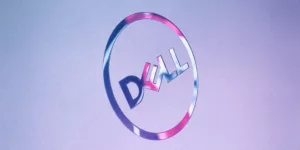This week Dell took us through an ESG (Environmental, Social, and Governance) update. The company continues to make progress. Dell’s most impressive effort is its Concept Luna effort which, if it ever makes it to market, would allow a laptop customer to custom configure a new notebook in a store like Best Buy and upgrade it later using an automated robotic manufacturing kiosk that could be put right in the store. That alone would increase Best Buy sales. People would come in just to see it work. In retail, store traffic directly relates to store sales. If people don’t come in, all those point-of-purchase efforts to create an impulse buying event are worthless.
Dell’s doing a lot of interesting things with aggressive moves to recycle the hardware it sells, to use fully recyclable packaging, and is moving aggressively to green energy. But Dell’s greenest potential offer isn’t positioned as a green offering at all. It’s called APEX, the company’s premier as-a-service offering but has the potential to out-green everything else. I’ll explain.
Tech started out relatively green
When the technology market first took off, it was mostly IBM and IBM didn’t sell much of anything as provided it as-a-service. The advantage to an as-a-service offering when it comes to green tech is that the vendor and the customer are on the same page about extending the use of technology as long as possible, not throwing it away prematurely.
But when you use a sales model, instead, the vendor and the customer are at cross purposes. The vendor wants to sell as much stuff as possible, promotes product churn to build revenue, and will almost immediately try to get the customer to replace what they have with something better once the newer product shows up, even if that newer product would have no material impact on the customer.
Look at your set top box in your cable served home. They’re rarely replaced unless they break. Then look at any appliance you have. You’re probably swapping them out far more quickly because the vendors don’t make money if you aren’t buying a new appliance.
It is somewhat ironic that while IBM was a services company, it was the most powerful in the industry by a significant margin. Because it was almost all recurring, IBM’s revenue was nearly invulnerable to market events and was able to implement employment for life policies with pensions for its employees.
But the downside is that, once you saturate the market, growing revenue is hard. So, management switched to a sales model from a services model and spiked IBM’s revenue for a few years. Once the switch was done, IBM almost went under, incurring the first layoffs in its history, fired a CEO for the first time in its history, and almost went under. Had IBM remained a services company, there is a reasonable chance it would have been fine. I did an extensive study as to the cause of IBM’s collapse when I worked there in the late 80s and early 90s, and the cause was largely due to the shift from services to product sales, which hurt both the company and its customers.
Dell APEX
Dell APEX is one of the broadest and most comprehensive as-a-service offerings currently in the market. It puts Dell once again on the side of the customer by extending the life of their hardware as long as possible and makes concepts like Concept Luna far easier to justify. That concept not only significantly reduces waste, but it also potentially significantly reduces cost to the hardware owner and, in a services model, Dell is that owner. Premature obsolescence doesn’t spike revenue, it spikes costs, making it in Dell’s best interest to mitigate those costs through upgrades and design decisions that minimize both the labor and hardware cost of any technological upgrade or advancement.
Rather than doing sustainability just because it is good for the planet, it moves the cost advantages of such an approach into a higher priority category, making it also more profitable to adapt a policy of retention and upgrade over one of replacement and disposal.
One area it doesn’t yet address (that would be interesting to explore) is energy use. Were energy use built into the services model, it could also increase the incentive to Dell to build more energy-efficient hardware, but if the energy costs are paid by the customer, Dell’s economic incentive to create more efficient products is reduced.
Wrapping up:
Dell has a comprehensive ESG program rating from aggressive EPEAT certifications to assuring the partners Dell works with are implementing aggressive conservation, inclusion and diversity programs. But the most impressive effort is Dell’s APEX offering which, short of energy use, effectively puts Dell and the customer on the same page to reduce hardware churn and waste and focus instead on service quality and customer satisfaction.
APEX not only sets a high bar on comprehensive services, but it also potentially sets the highest bar on conservation and ESG and is just one of several as-a-service offerings that may help transform wasteful technology practices into far more committed green efforts.








